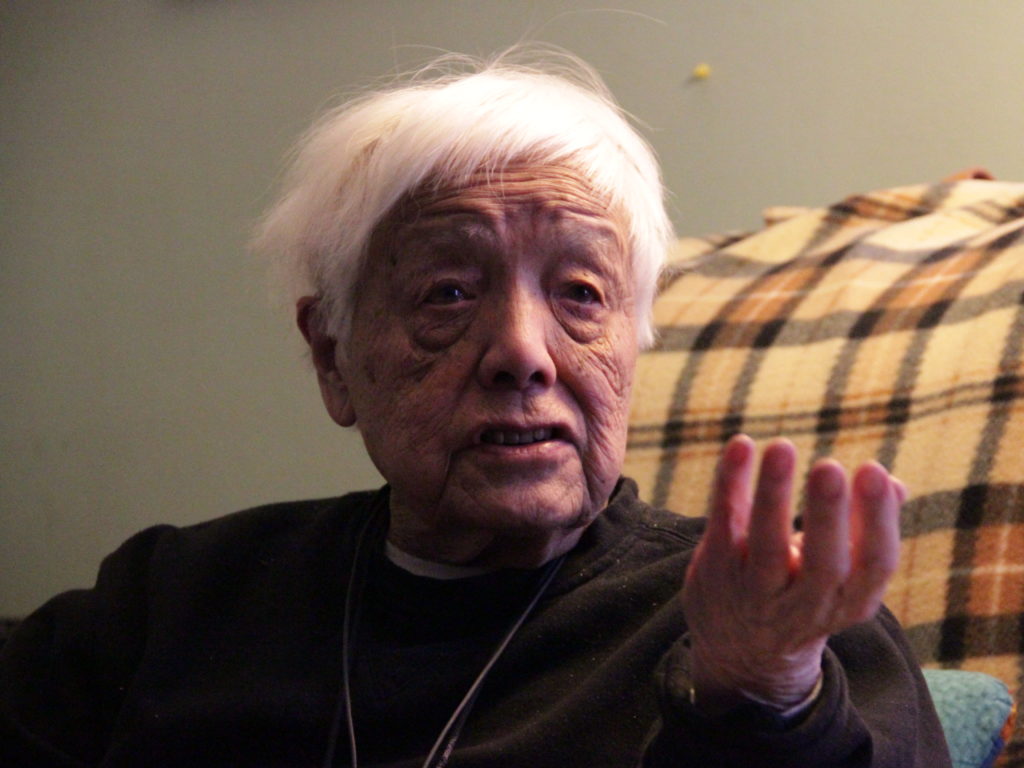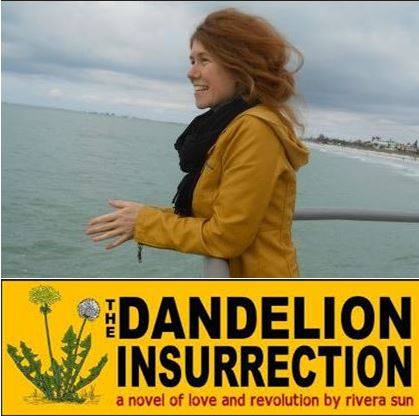
On June 27th, 1915, Grace Lee Boogs was born in Providence, Rhode Island, above her father’s restaurant. Grace later said, “because I was born to Chinese immigrant parents and because I was born female, I learned very quickly that the world needed changing.”
Over her 100 years of life, she would, indeed, change the world . . . and herself. She began her organizing work with labor and workers’ rights, tenant’s rights, and the struggles of the African-American community. In 1953, she married African-American autoworker and political activist James Boggs and moved to Detroit where they focused on the Civil Rights and Black Power movements.
Her approach to activism and social change shifted dramatically over her long, engaged lifetime. She began with Marxist, violent revolutions as the primary mechanism of change, and then expanded her thinking into understanding that change happens on the social and cultural levels, not just the political and economic. During the Civil Rights and Black Power movement, she started out unconvinced of Dr. King’s nonviolence. The Detroit Riots of 1967 and the rise of violent crime in her community, made her question violence as a means to change.
In a 2012 interview, she said, “I was not a supporter of Martin Luther King during the early period, because I was in Detroit talking about Black Power and Malcolm. But when violence began to break out amongst us I think we had to begin rethinking- why is non-violence such an important, not just a tactic, not just a strategy, but an important philosophy? Because it respects the capacity of human beings to grow- it gives them the opportunity to grow their souls and we owe that to each other. I used to think of it in very political purely narrow superficial terms but you know you grow older you grow wiser.”
Boggs eventually adopted Dr. King’s nonviolent strategies and fostered Dr. King’s vision of “beloved communities,” in Detroit. She started food cooperatives and community groups to support the elderly, fought utility shut-offs, and organized unemployed workers. She combated crime by organizing protests outside known crack houses, and promoted civic reforms. In 1992, she founded Detroit Summer, an intergenerational multicultural youth program.
A documentary film, American Revolutionary: the Evolution of Grace Lee Boggs, shows the powerful transformations throughout her life, both personal and political. Her story is an important one for all Americans to know, for it chronicles the life of a woman who unceasingly questions, examined her beliefs, and worked for justice and change.
Read more about her life: http://www.nytimes.com/2015/10/06/us/grace-lee-boggs-detroit-activist-dies-at-100.html?_r=0 Read the transcript of her talk with Angela Davis: http://www.radioproject.org/2012/02/grace-lee-boggs-berkeley/Photo Credit: Grace Lee Boggs By Kyle McDonald – Flickr: IMG_8554, CC BY 2.0, https://commons.wikimedia.org/w/index.php?curid=19287482
This article is from Rivera Sun’s book of nonviolent histories that have made our world. Click here for more information.
______________________________________

Rivera Sun is a change-maker, a cultural creative, a protest novelist, and an advocate for nonviolence and social justice. She’s a love-based revolutionary and the author of The Dandelion Insurrection, The Way Between and ten other fiction, non-fiction and poetry books. Her essays and writings are syndicated by Peace Voice, and have appeared in over a hundred journals nationwide. Rivera Sun speaks and facilitates workshops in strategy for nonviolent change across the country and around the world. She connects the dots between the issues, shares solutionary ideas, and inspires people to step up to the challenge of being a part of the story of change in our times. www.riverasun.com